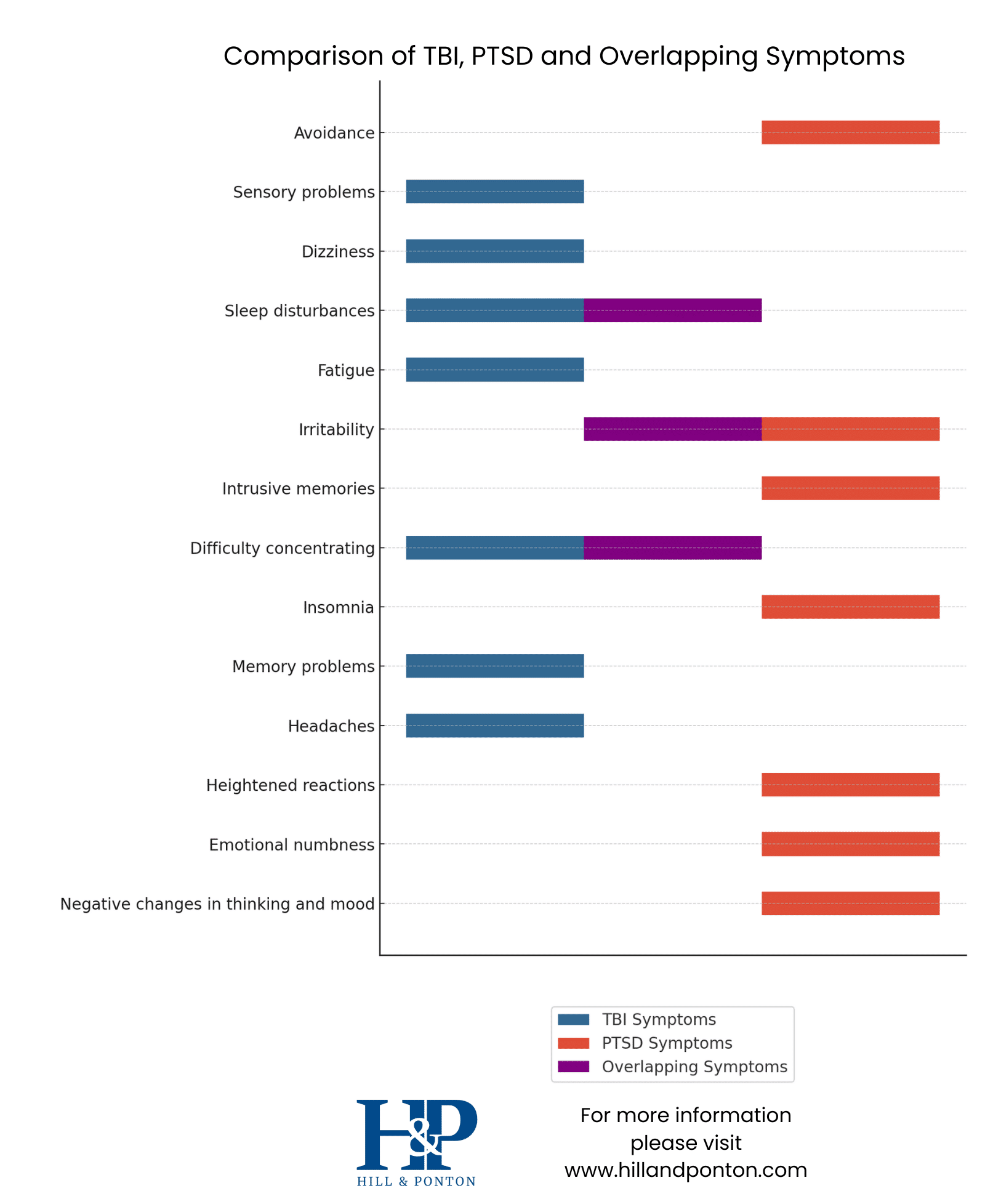When it comes to VA disability benefits, Traumatic Brain Injury (TBI) and Post-Traumatic Stress Disorder (PTSD) are often considered together.
The VA gives each a separate rating, but sometimes they might be rated as one if they show the same symptoms. It’s important to know the different signs of TBI and PTSD to get the right rating.
Understanding TBI vs. PTSD
What Is TBI?
TBI happens when a sudden injury damages your brain. Veterans might get it from things like a hard fall or a blast during combat.
It can affect you in different ways:
- Cognitive: Trouble thinking, focusing, or remembering.
- Emotional: Feeling anxious, sad, or getting upset easily.
- Physical: Problems with movement, balance, or vision.

Learn more about TBIs – click here!
What Is PTSD?
PTSD is a mental health condition that can happen after seeing or living through something really scary or traumatic.
It shows up in several ways:
- Intrusive Thoughts: Bad memories or nightmares that keep coming back.
- Avoidance: Staying away from people or places that remind you of the trauma.
- Negative Changes in Thinking and Mood: Feeling bad about yourself or the world.
- Changes in Physical and Emotional Reactions: Getting angry easily or feeling on edge.
Learn everything you need to know about getting rated for PTSD – check out our guide below.

Click here to visit our comprehensive PTSD guide!
What VA Rating and Compensation Should You Get for TBI and PTSD?
TBI and PTSD: Separate or Combined Ratings?
Sometimes, the VA will give separate ratings for TBI and PTSD. Other times, TBI and PTSD combined ratings are assigned. For example, if your TBI and PTSD symptoms are very different, you’ll get separate ratings. But if the symptoms overlap a lot, you might get one combined rating.
Getting a Combined Rating for TBI and PTSD
Attorney Rachel Cheek dives into the issues that you may run into with the VA when you have both conditions:
Did the VA assign you the wrong rating? Get a free evaluation of your claim – our VA-accredited attorneys may be able to help!
Free case evaluationDifferences Between TBI and PTSD Symptoms
It’s important to know which symptoms are from TBI and which are from PTSD:
- TBI often causes physical problems like headaches or dizziness.
- PTSD usually involves feeling very stressed or having emotional reactions.
The graph below illustrates the symptoms of PTSD, TBI and those that overlap. Blue bars indicate PTSD symptoms. Red bars indicate TBI symptoms. Purple bars indicate overlapping symptoms of both disorders.

Steps to Ensure Accurate Rating
When getting ready for your VA rating, remember these tips:
- Write down all your symptoms and how they affect your daily life.
- Get medical check-ups and reports to show the VA.
- Stay informed and consider seeking legal assistance.
Think You Should Be Rated for Both PTSD and TBI But Were Denied? Remember, Your Time Is as Important as Your Claim
Your moments are precious, don’t waste them on the legal complexities of trying to overturn a VA denial. Our PTSD lawyers can fight on your behalf for the compensation you deserve. Get your free case evaluation with us today.





